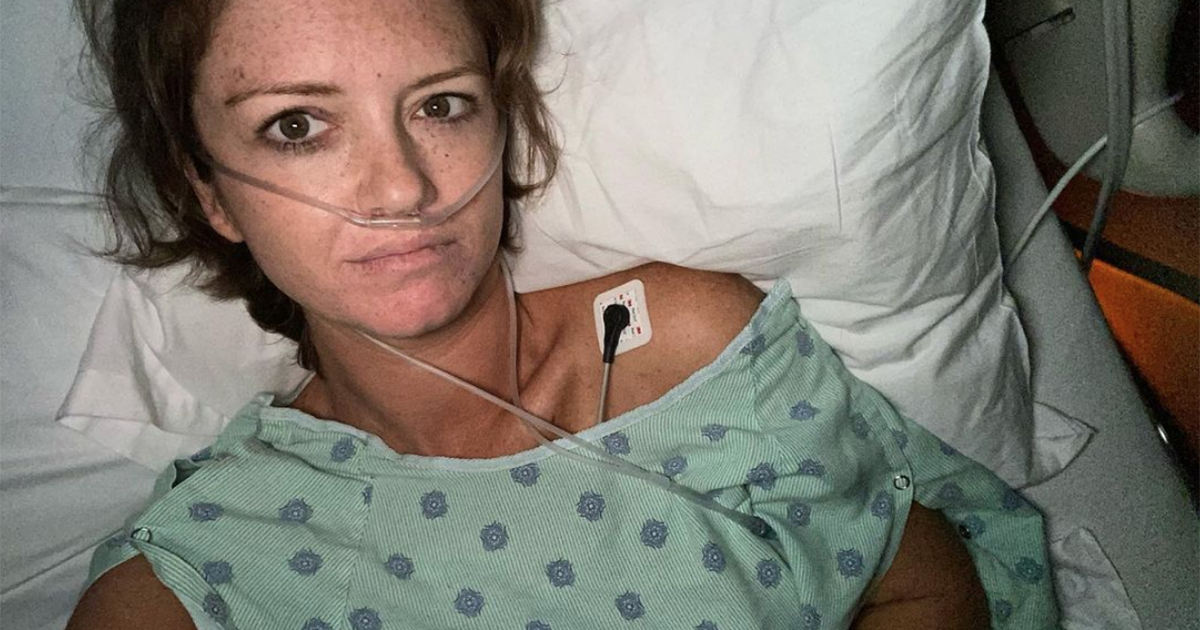Preparing for Lung Surgery
- Fox anchor Lindy Thackston reports that surgery to remove a cancerous lesion in her lung went well, but that doctors had to remove half of her left lung.
- Thackston, an anchor for FOX 59 News in Indianapolis, was diagnosed with stage 3 colorectal cancer in May 2020, but recently found out it spread to her left lung.
- There are several types of lung surgery options, and the decision about which is best is based largely on the location of your cancer, its size and whether it has started to spread.
Early Tuesday morning, the Indianapolis-based news anchor shared a selfie from her hospital bed, ensuring all that her lung surgery went well. But she lost half of her left lung, as her surgeon ended up having to perform a lobectomy surgery to remove a lobe of an organ such as the thyroid gland, lung or liver.
Read MoreThackston’s Cancer Journey
Thackston, an anchor for FOX 59 News in Indianapolis, was diagnosed with stage 3 colorectal cancer in May 2020. She finished her chemotherapy treatments in the spring of this year; she had 10 rounds of chemo to fight her cancer.But in September, she announced that her doctors found a spot on her lung during an unrelated hospital visit. She told her followers that the lung spot prompted a biopsy, which revealed the cancer had spread to her lung her cancer was now stage 4.
In an episode of her podcast, Life With Lindy, posted last month, she further explained that her doctors think the spot on her lung had been there from the very beginning when she was diagnosed with stage 3 colorectal cancer. But it was small; it never changed or did anything the entire time she battled colorectal cancer, she said.
In the same episode, Thackston said the plan was to have surgery this month to remove the nodule. "(My doctors) are thinking it's gonna be a wedge resection (surgery to remove a triangle-shaped slice of tissue) but he could get in during the surgery and figure out that he needs to take half of my left lung," she said, "so a lot of that will be at the last second."
And a last minute decision it was, as she ended up having a lobectomy procedure to remove half of her left lung. Since she's still recovering in the hospital, Thackston hasn't shared further details about the surgery, but she's been extremely open about her cancer journey, so it can be assumed more details will be forthcoming.
Preparing for Lung Surgery
Many might think Thackston now has lung cancer, but that's not the case. Her stage 3 colorectal cancer spread to her lung, so the spot on her lung was considered a colon cancer recurrence. However, the surgical options to remove the lung spot are the same as someone diagnosed with lung cancer.
Dr. Raja Flores explains the different options patients have when it comes to lung surgery.
There are several types of surgery options, Dr. Raja Flores, chairman of the department of thoracic surgery at the Mount Sinai Health System, tells SurvivorNet. And the decision about which is best is based largely on the location of your cancer, its size and whether it has started to spread. (This last point is mainly for patients who have been diagnosed with lung cancer, not for patients with other cancers that have spread to the lungs.)
Thackston originally thought she was going to have a wedge resection, which is an option if the tumor is small and located on the outside of the lung. In this procedure, your surgeon removes a piece of the lung (in the shape of a wedge) and lung function is not affected.
In contrast, a lobectomy or a segmentectomy involves the removal of a certain segment of the lung (a lobe) this is what ended up happening to Thackston. During a pneumonectomy, the entire lung is removed.
There are several different ways to do lung surgery; the standard operation used to be open surgery with a big incision in the chest and then spreading apart the ribs. But because of the pain after the operation and the lengthy recovery time, doctors are increasingly using less invasive operations.
When Colon Cancer Comes Back
What can you do when colon cancer comes back? With stage 1 and 2 colon cancer, it's rare that the cancer will recur after it's removed with surgery. Recurrences are more common with later stages, like in Thackston's case; that's the reason doctors will often recommend chemotherapy after surgery for stage 3 colon cancer (and high risk stage 2).
When Colon Cancer Comes Back: Understanding the Options
If colon cancer is going to recur, it will most commonly happen within the first two years, Dr. Heather Yeo, colorectal surgeon and surgical oncologist at Weill Cornell Medicine and NewYork-Presbyterian, tells SurvivorNet. The way doctors attempt to manage these cancers will depend on the location of the recurrence and how quickly it returns. If it comes back in multiple areas, this suggests a more aggressive disease and chemotherapy will likely be recommended.
"The reason that we give adjuvant chemotherapy, or chemotherapy after surgery in stage 3 is that even though we've cut out all the tumor that we can see, there are probably some cells that we can't see somewhere in the body," Yeo says, "and so that's what the chemotherapy is for."
"Some of the time the chemotherapy prevents the cancer from coming back or spreading. But sometimes it does, and those patients get recurrent cancer," she adds.
That recurrent cancer can happen anywhere; in Thackston's case, it came back in her lung. And the management of recurrent cancer depends on where it comes back, according to Yeo.
Contributing: SurvivorNet staff
Learn more about SurvivorNet's rigorous medical review process.


